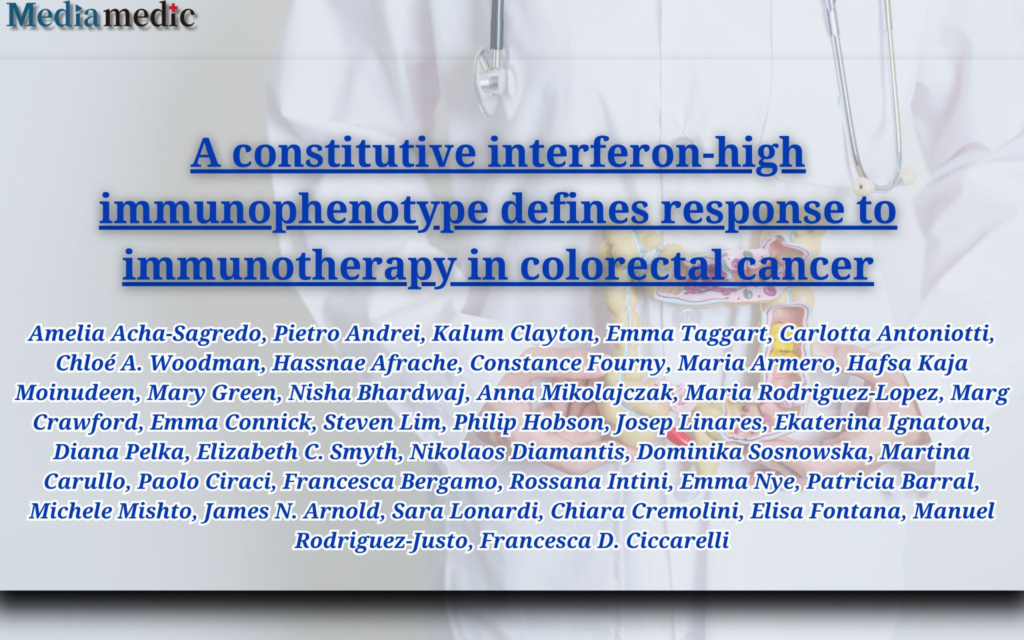
A new study published in Cancer Cell, provides key insights into the role of the interferon-high (IFN-high) immunophenotype in predicting response to immune checkpoint inhibition (ICI) in colorectal cancer (CRC). By analyzing tumor microenvironment features, the study identifies a subset of both mismatch repair-deficient (dMMR) and mismatch repair-proficient (pMMR) CRCs that exhibit an IFN-high profile, marked by cytotoxic T cells and antigen-presenting macrophages.
One of the key findings is the high expression of CD74, which correlates with clinical benefit from ICI therapy, independent of microsatellite status or tumor mutational burden (TMB). The study suggests that CD74 abundance, detectable through standard immunohistochemistry, could serve as a predictive biomarker for ICI response, potentially expanding immunotherapy eligibility to a broader CRC patient population.
If validated in future trials, CD74-based patient stratification could reshape clinical decision-making in CRC, allowing for more precise and effective immunotherapy strategies beyond current TMB and MMR-based selection criteria.


